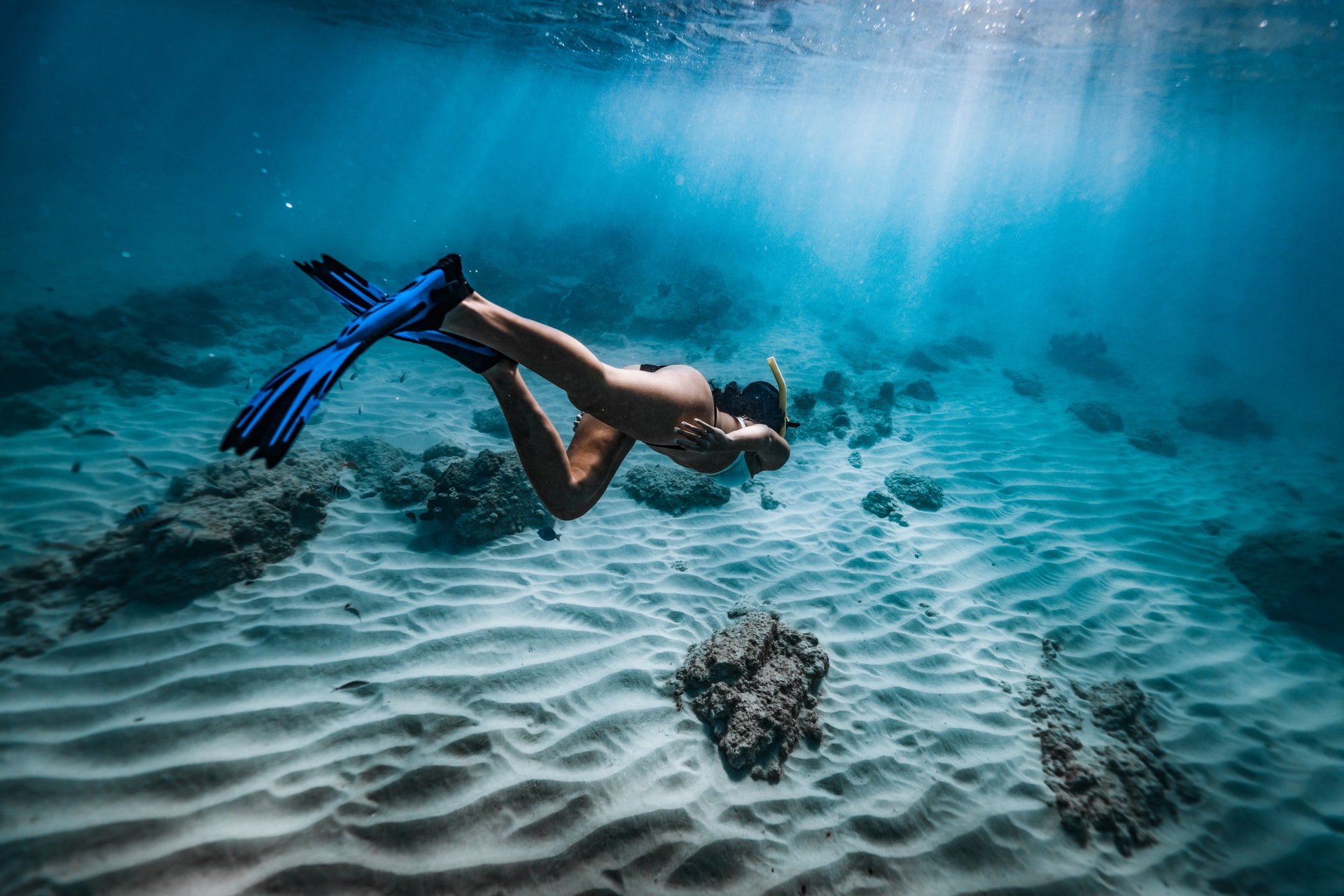Are you looking for an enjoyable and easy way to discover what’s under the surface of the water?
Maybe you have a vacation coming up and are thinking about all the activities that you’ll want to do.
In warm, coastal resorts, there’s a vast range of excursions vying for your dollars, but for many people, snorkeling in tropical seas is on the “must-do” list.
Floating on the surface, you’ll get a great look at the beauty of the underwater world and the exciting sea life.
But you might be wondering if snorkeling is suitable for you personally and if there are any health implications to be aware of.
We’re going to show you that snorkeling is a healthy activity that can promote fitness and wellbeing.
You do, of course, need to be sensible in what you attempt and take reasonable, mostly common-sense, precautions.
You’ll see that most of the possible hazards of snorkeling are the same as when swimming or spending too much time in the sun.
So slap on some reef-safe sunscreen, put on your snorkel vest, and let’s see what we can discover.
- Is Snorkeling a Healthy Activity?
- Can Snorkeling Be Unhealthy?
- Are There Any Health Benefits in Snorkeling?
- Is Snorkel Good For the Lungs?
- What Are the Dangers of Snorkeling?
- 7 Tips to Enjoy Snorkeling as a Healthy Activity
- Conclusion
- You Might Also Like…
Disclosure: this post contains affiliate links (clearly marked with ), which means we may earn a commission if you buy something through them, at no additional cost to you.
Is Snorkeling a Healthy Activity?
Most people find that snorkeling is a fun way to spend time enjoying the beauty of the natural aquatic environment.
Unlike scuba diving, you don’t need a lot of equipment, just a mask, a snorkel, and some fins.
Beginners can quickly take part as snorkeling is pretty easy for most people.
You don’t need to be an especially strong swimmer to snorkel, although some confidence in the water will make it easier.
Snorkeling is a healthy activity in many ways, and we’re going to look at the details below.
In general, we can say that snorkeling can provide low-impact cardiovascular exercise that’s great for improving muscle strength and joint mobility.
Snorkeling is relaxing as it puts you into contact with nature, so you can expect your mood to improve and stress levels to fall during and after a session.
Can Snorkeling Be Unhealthy?
Most of the problems that can occur while snorkeling are related to being in the water, so they are similar to those possible when swimming.
Additionally, there can be issues with exposure to the natural aquatic environment or spending too much time in the sun.
For some beginners, the learning process of using the mask and snorkel for the first time might mean that they’re more likely to get into discomfort or difficulty.
To avoid the risk of stressful situations, new snorkelers should follow our snorkeling tips for beginners.
Snorkeling itself isn’t unhealthy, but we’re going to take you through the associated potential problems so you can avoid them happening to you.
Are There Any Health Benefits in Snorkeling?
First off, snorkeling is a fun, relaxing form of physical, cardiovascular exercise.
You might be surprised to learn that MyFitnessPal suggests that snorkeling can use 250 to 350 calories per hour depending on the intensity of activity.
The overall workout covers your core and legs and is excellent for aiding joint mobility while also being low-impact.
Almost anyone can snorkel, so it can help those suffering from joint stiffness or obesity issues.
As well as the physical benefits, snorkeling is great for enhancing mental wellbeing.
Many people find that drifting along the surface and coming into close contact with nature can create an almost meditative feeling of relaxation.
Regular snorkeling can reduce stress and enhance mood long-term.
Additionally, learning to snorkel and then continuing to improve can provide an excellent feeling of personal satisfaction and achievement.
Is Snorkel Good For the Lungs?
Snorkeling can be regarded as being good for the lungs as it promotes deep breathing along with airway control skills.
One of the most critical skills you’ll master as you practice snorkeling is what to do if you get water into your snorkel and how to remove it.
Airway control allows you to breathe in gently around the water and then give it a good, hard blast out so that you can breathe freely again.
There is one, thankfully rare, health condition connected to the lungs that can cause problems when snorkeling.
If someone suffers from Swimming-induced pulmonary edema (SIPE), the symptoms can occur in any depth of water and are not uniquely connected to snorkeling.
While it isn’t common, it’s worth being aware that if you should suffer from shortness of breath, excessive fatigue, or extreme coughing when in the water, you should get out and get examined by a medical professional.
What Are the Dangers of Snorkeling?
As we’ve already mentioned, the dangers associated with snorkeling are mainly those found with any watersport or being in too much sun.
Staying safe when snorkeling is all about being a little cautious and not pushing yourself too far to get into a dangerous situation.
The most significant risk attached to any watersport is drowning, but this can be avoided by being sensible.
If you are not a strong or confident swimmer, always use a floatation device.
It’s recommended that all snorkelers use a snorkel vest at a minimum which can be inflated if buoyancy is needed, and you should always snorkel with a buddy.
Whether swimming or snorkeling, the following are all genuine dangers that can cause more significant problems if caution isn’t observed.
- Exhaustion – Don’t swim too far from the boat or exit point so that you can still reach it if you do start to get tired.
- Cramps – Leg cramps can be excruciating and can prevent you from swimming effectively.
Help prevent them by staying hydrated, stretching muscles before exercise, and eating foods high in potassium like bananas.
- Dehydration – As well as causing leg cramps, dehydration can cause fatigue, dizziness, and sickness.
Carry a water bottle with you, especially in hot environments, so you can drink water while snorkeling.
- Sunburn – When the water cools you, it’s easy to forget just how damaging the sun can be.
Always snorkel with reef-safe sunscreen or, even better, UV blocking clothing.
- Hypothermia – It’s also possible to easily not recognize how cold you’re getting. If you do start to feel cold, get out and get warm.
- Cuts and stings – Stay well away from rocks and corals to prevent yourself from being injured and protect the fragile life.
If you’re in an area known for stinging animals like jellyfish, you can get thin bodysuits that not only protect you from getting stung but will also protect you from sunburn.
- Boat traffic – If you’re going to be in an area where there’s a lot of boat activity, take a brightly colored float so you can be easily seen.
- Changing water conditions – Don’t get so distracted with what’s underwater that you don’t notice a change in surface conditions or currents. If in doubt, stay close to the boat or exit point.
Getting used to the mask and snorkel can take time, and it is possible to get into difficulty if water gets in and you’re not able to deal with it.
Take the time to practice in shallow water, or even consider taking snorkeling lessons to get tips from a pro.
7 Tips to Enjoy Snorkeling as a Healthy Activity
1. Always Go With a Buddy
Not only is snorkeling with a buddy safer as there’s someone there to help if you need it, but it means that you’ll have someone there to share the fun with as well as a second pair of eyes to spot the exciting sea life.
2. Guided Groups Can Be Fun and Confidence Building
If you’re not that experienced, don’t be afraid to go with a guided group.
Often these excursions will visit the most exciting areas, and you’ll have a professional pair of eyes to keep a watch on your safety.
3. Practice Your Swimming
While being an especially strong swimmer isn’t necessary, some skill will make things easier for you, especially if you want to use snorkeling as a healthy exercise activity.
Please take a look at our snorkeling tips for weaker swimmers.
4. Don’t Forget the Sun
It’s incredibly easy to get sunburnt when snorkeling, so remember to apply your reef-safe sunscreen well before getting in the water or wear sun-blocking clothing.
5. Stay Hydrated
Take a water bottle with you so you can stay hydrated.
Make sure you pick one with a wrist lanyard, so you don’t lose it and pollute the sea.
6. Always Have Some Sort of Floatation Device
Even experienced snorkelers should wear a light snorkel vest just in case they need assistance.
Take what’s right for you so you can remain comfortable and safe.
7. Go Slow
Pace yourself, and not only won’t you get tired too quickly, but you’ll also see more life underwater.
Don’t worry, those legs will still get a workout.
Conclusion
We’ve seen that snorkeling can be a healthy activity that can provide great physical exercise and mental enjoyment and wellbeing.
Take care to avoid pushing yourself too hard and remember to stay inside your comfort zone, and don’t be afraid to ask for help if you need it.
Build your confidence, and you’ll quickly start to discover the health benefits that snorkeling can offer.
You Might Also Like…
-

Can You Drown Snorkeling? 11 Common Reasons (+Helpful Tips)
-

Can I Use Snorkeling Fins for Bodyboarding? Pros & Cons (+6 Tips)
-

What Colors to Avoid When Snorkeling? (& Which You Should Wear)
-

Is It Safe to Fly After Snorkeling? What You Should Know (+4 Tips)
-
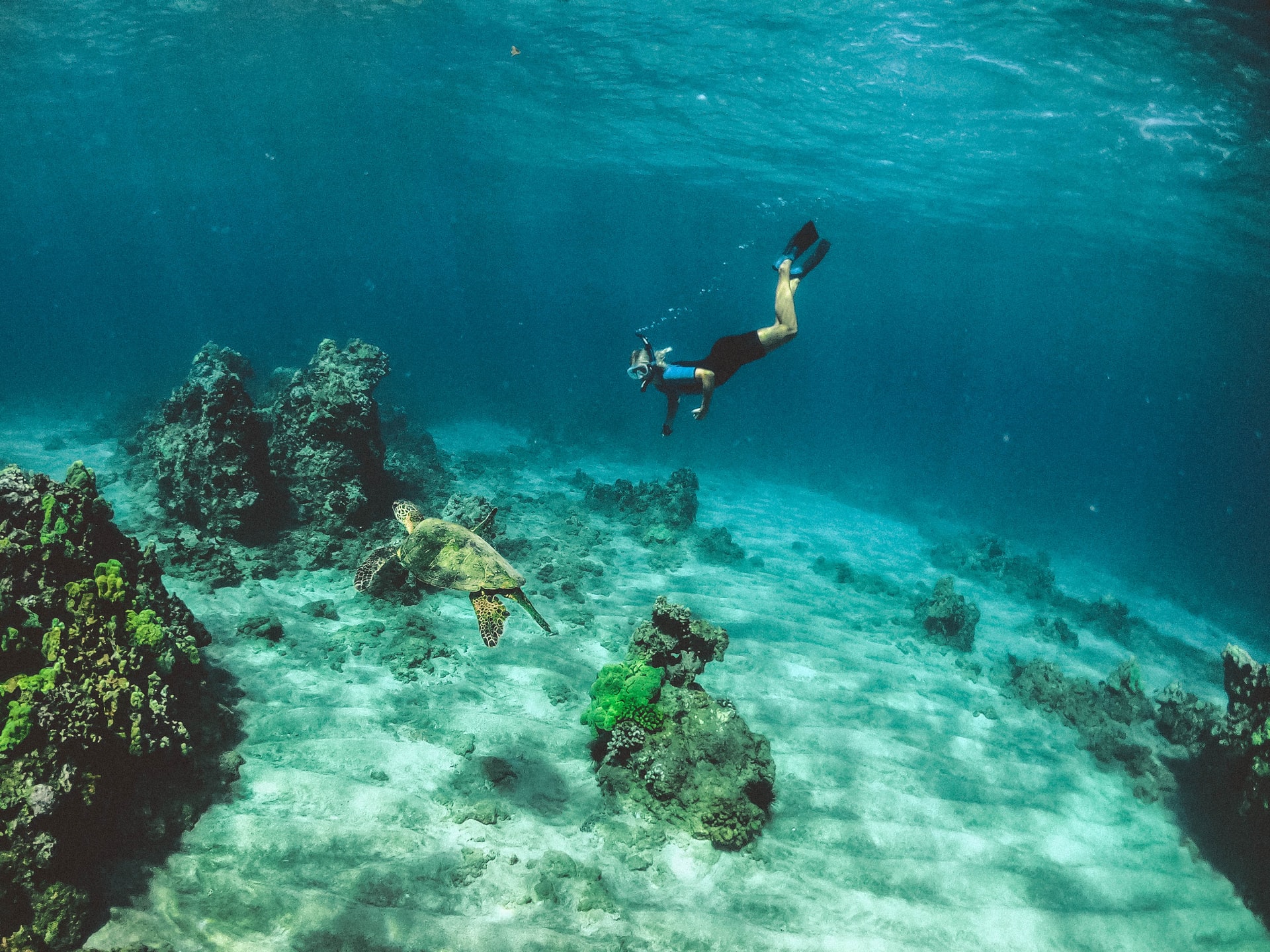
Can’t Hear After Snorkeling? 3 Possible Causes (& Solutions)
-
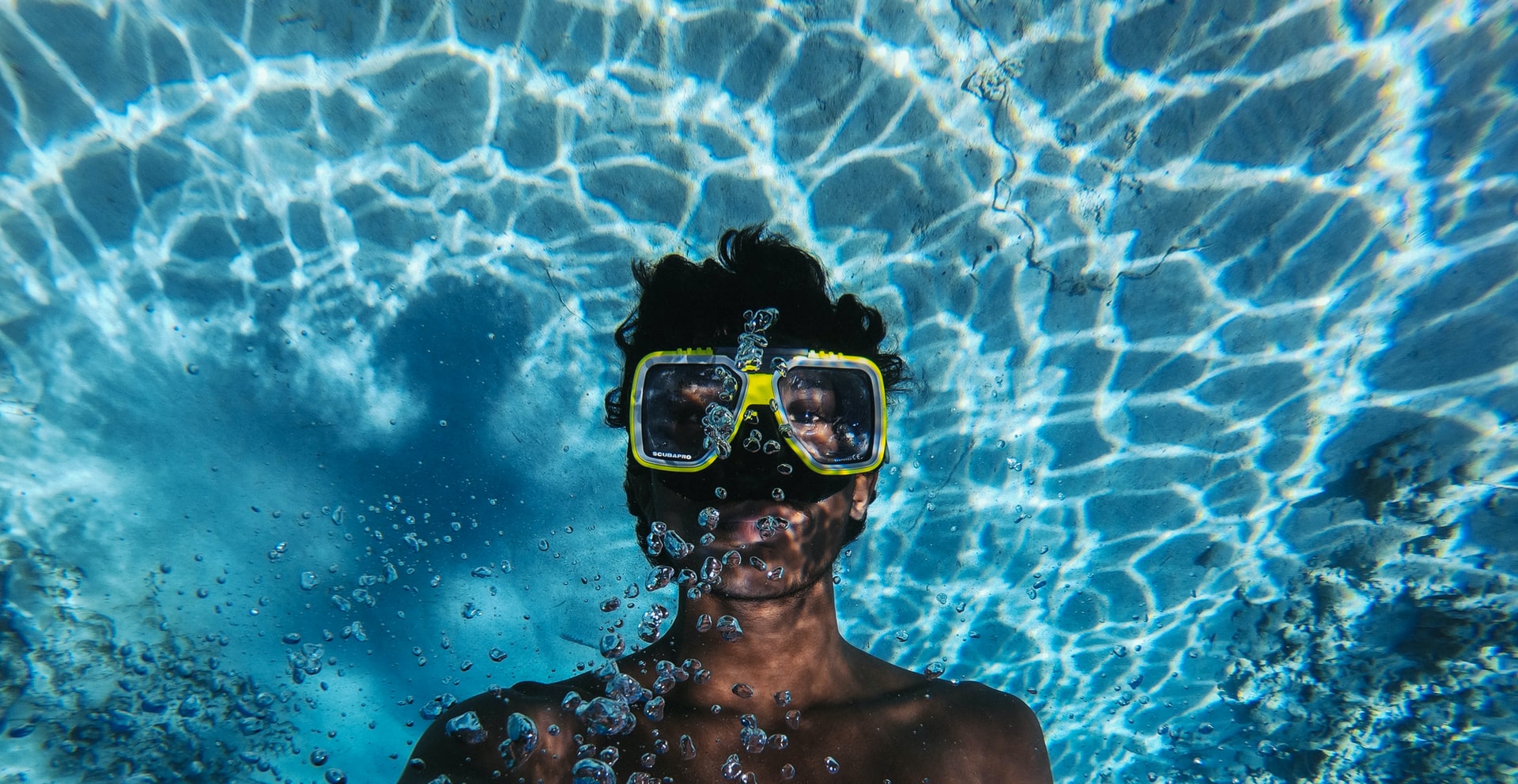
Can Snorkeling Cause a Sinus Infection? (+9 Tips to Avoid It)
-
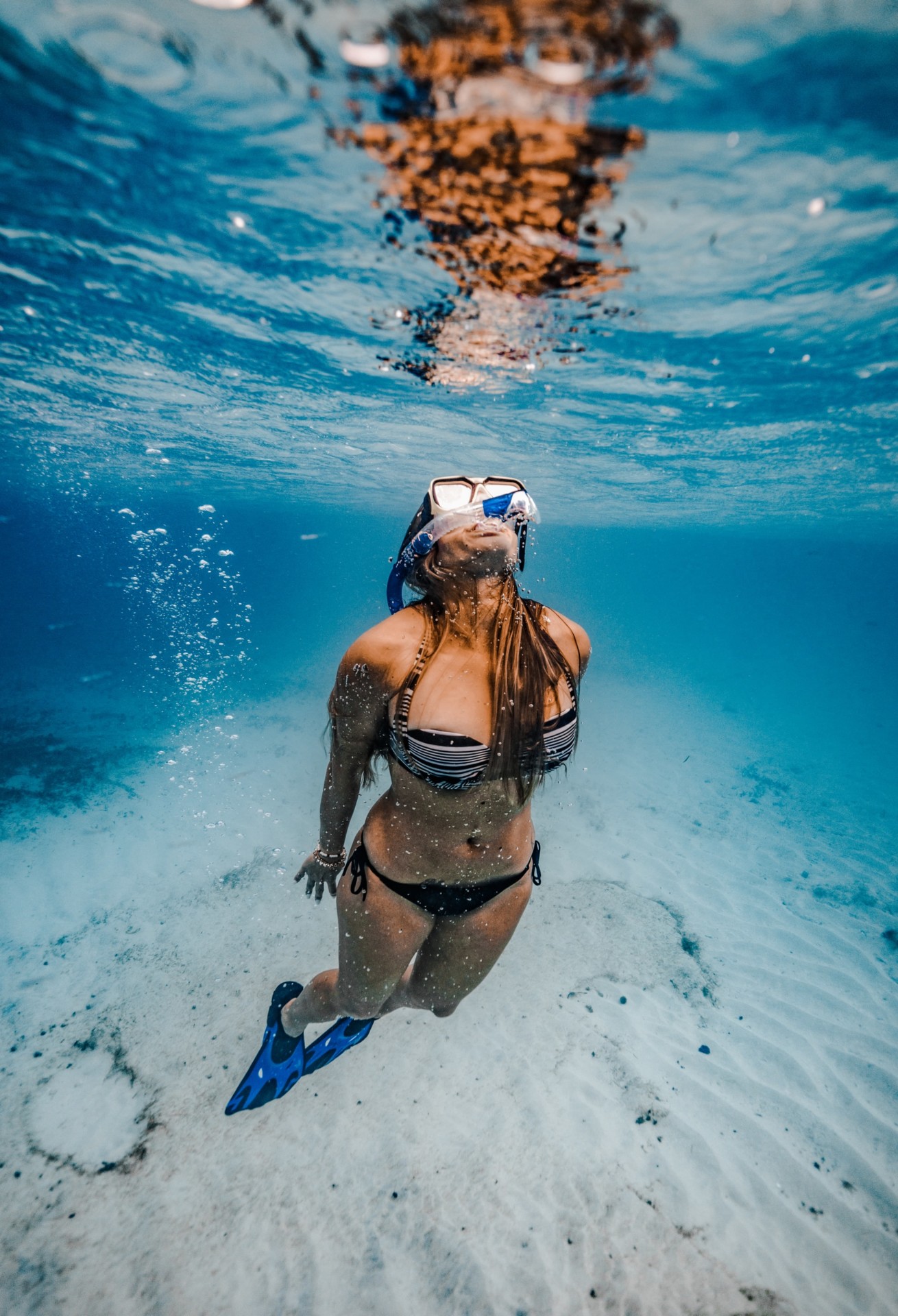
Can Snorkeling Cause a Sore Throat? 8 Common Causes (+Tips)
-
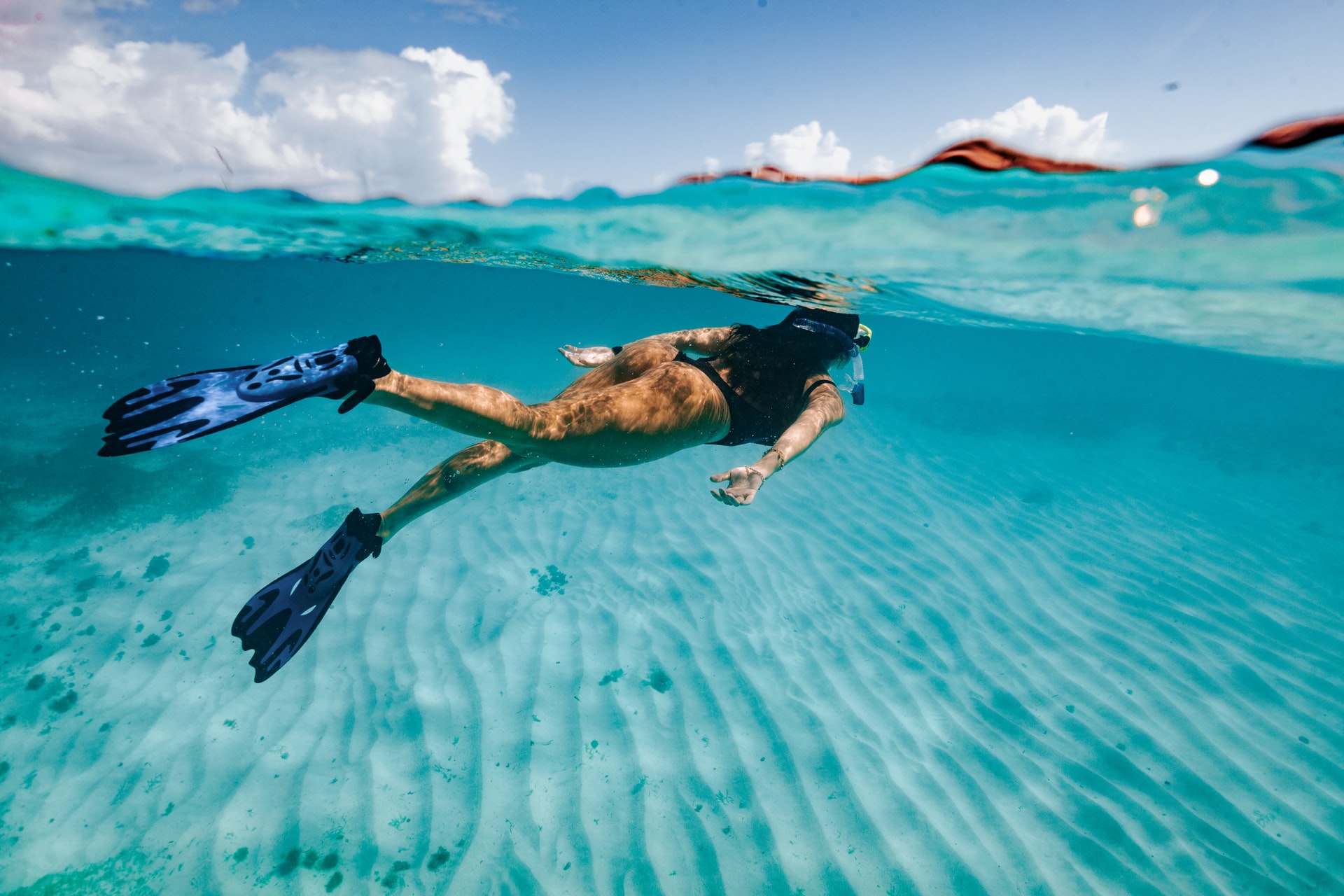
Can Snorkeling Cause Vertigo? (+8 Tips to Avoid It)
-
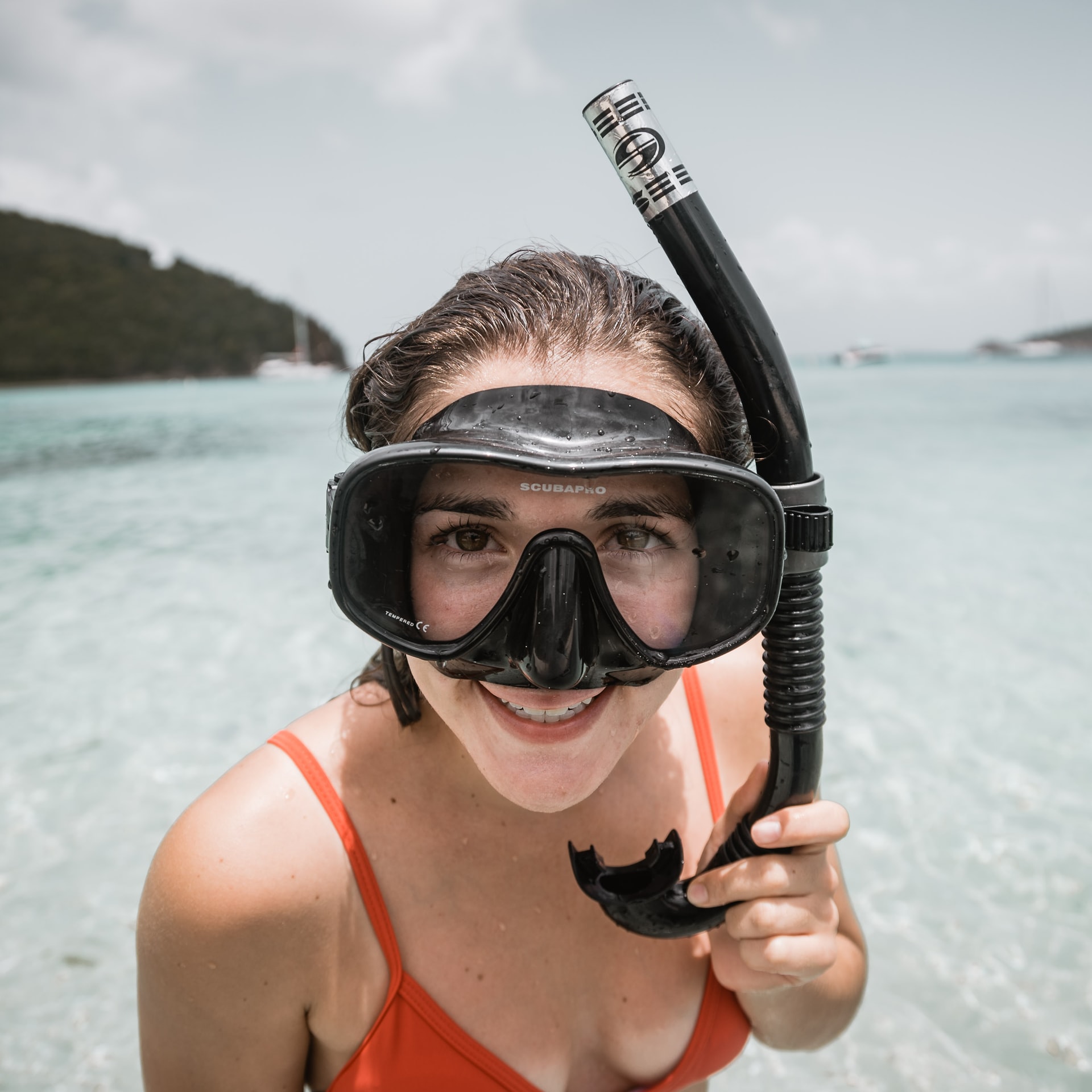
How Do Snorkel Masks Work? (+Regular Vs. Full-Face Masks)
-
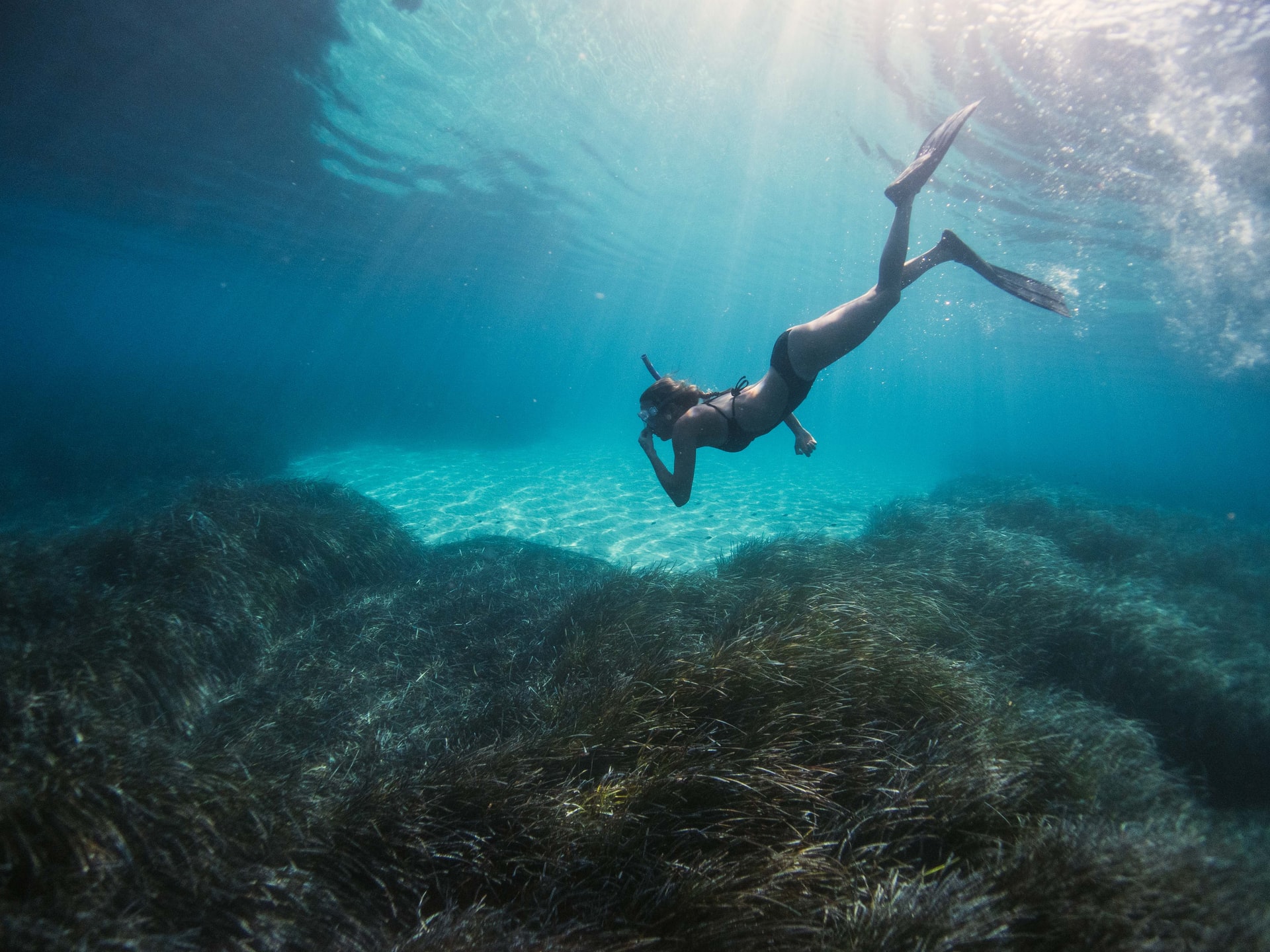
Why Does Snorkeling Make Me Nauseous? (11 Causes & Remedies)
-
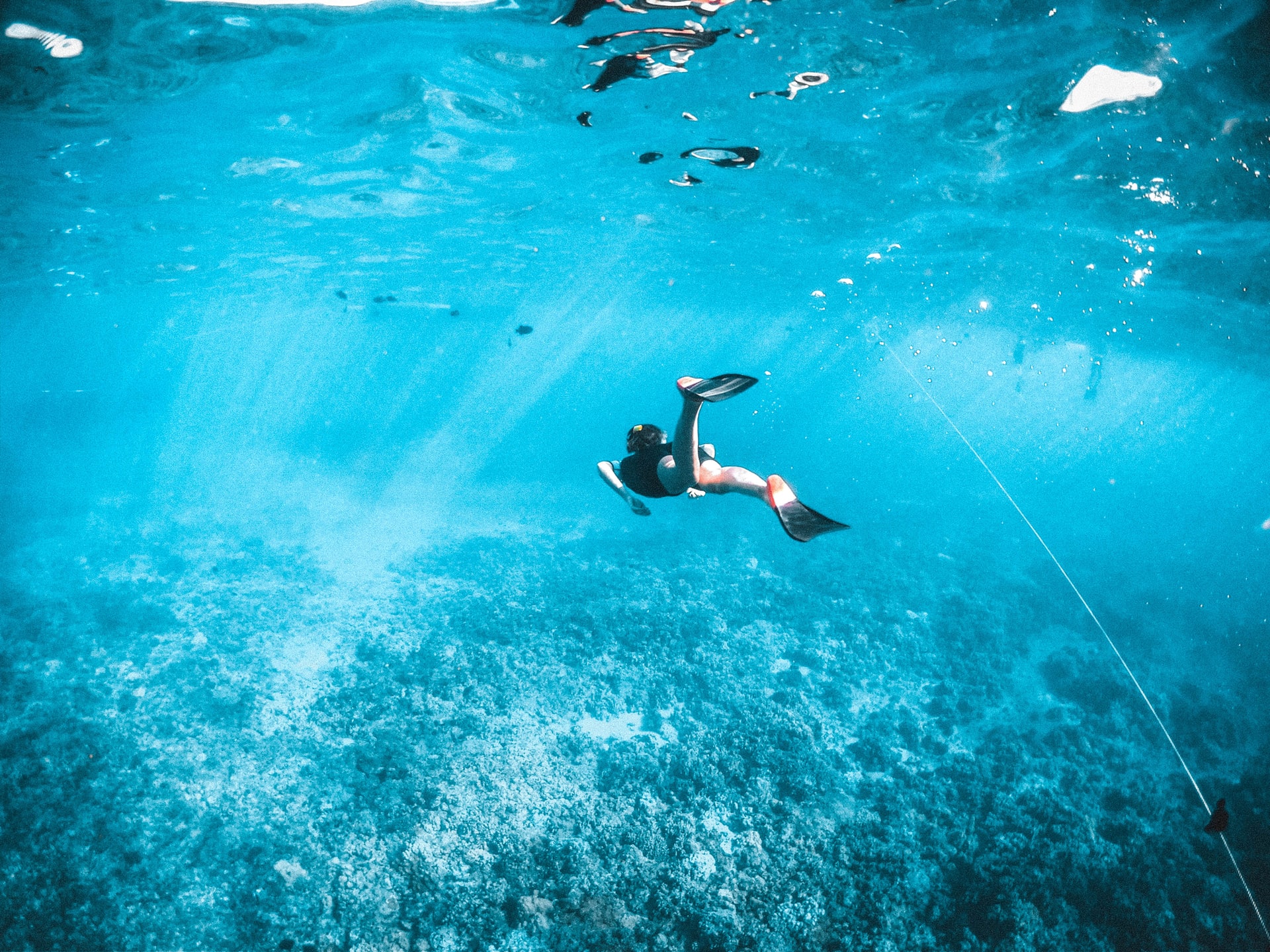
What Does Snorkeling Feel Like? FAQs Answered (for Beginners)
-
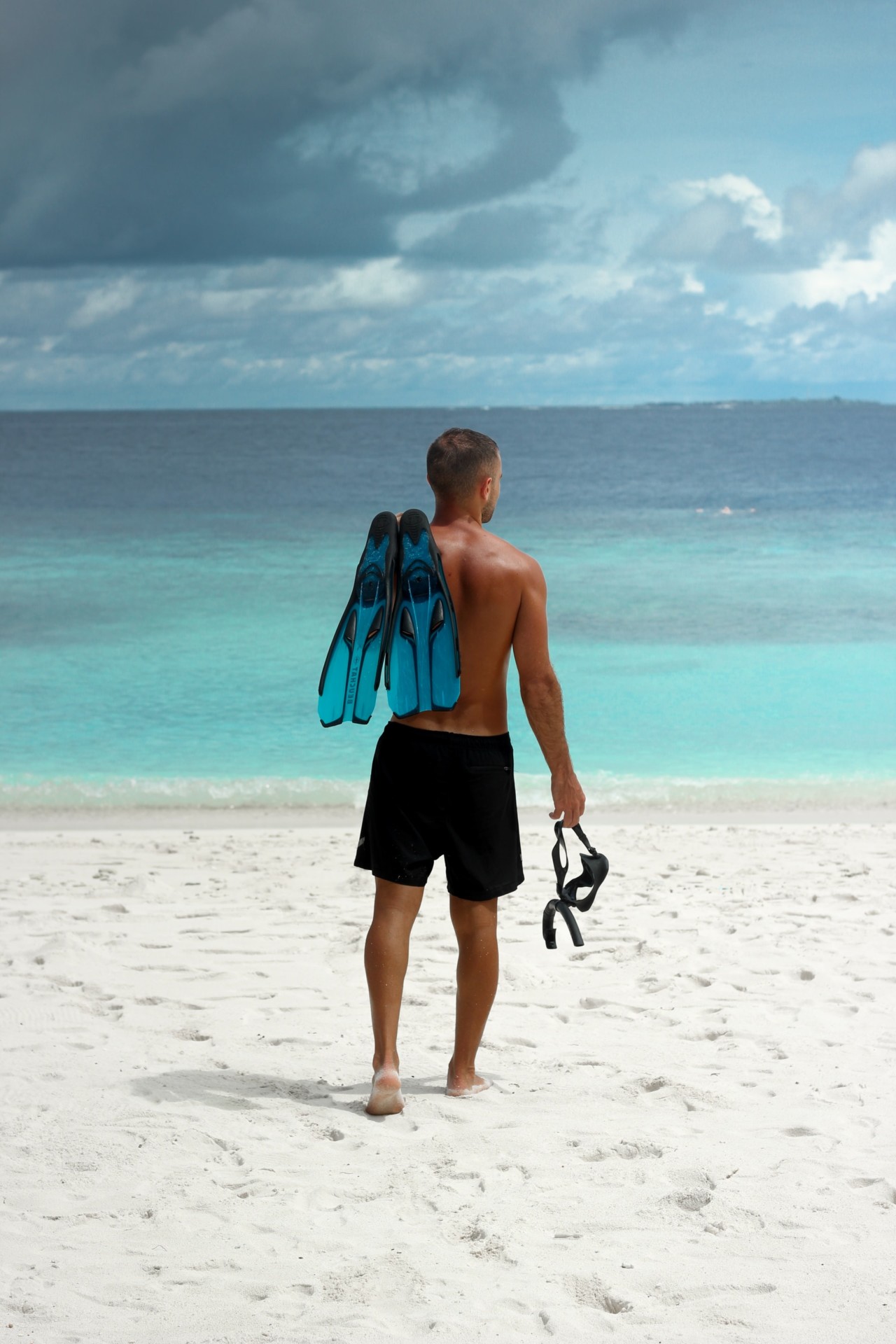
Does Rain Affect Snorkeling Visibility? 4 Ways It Does (+Helpful Tips)

